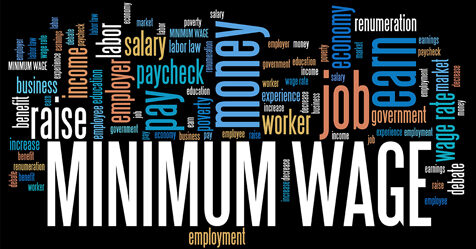Weekly Advocacy Recap—President Signs COVID-19 Relief Bill
Happy New Year from your ISSA Government Affairs team and welcome to the ISSA Advocacy Recap, our regular roundup of the latest public policy issues impacting the cleaning industry. This week’s recap touches on the enactment of federal legislation to provide additional economic relief from COVID-19, ISSA comments regarding this legislation, Senate leadership rejecting standalone US$2,000 stimulus checks, and more.
ISSA Thanks President and Congress for Enactment of COVID-19 Relief
ISSA thanks President Donald Trump and the U.S. Congress for enacting legislation to provide additional relief to the cleaning industry from the COVID-19 pandemic. On December 27, President Trump signed into law a US$900 billion pandemic-aid bill, paving the way for millions of Americans, including the cleaning industry, to receive economic relief as the coronavirus pandemic surges across the country. The year-end package also includes a $1.4 trillion bill to continue government funding through September 2021.
ISSA Comments on Passage of COVID-19 Relief
On December 21, the U.S. Congress agreed on a US$900 billion COVID-19 relief package. Several provisions of the package are impactful to ISSA members and the cleaning industry. “In total, the relief package is an important lifeline to struggling businesses and positive step in the right direction,” said ISSA Director of Government Affairs John Nothdurft said. “However, the absence of a healthy workplace tax credit—a bipartisan-supported, commonsense proposal—is disappointing. ISSA plans to work with the new Congress on this and other critically important issues in 2021. Thank you to the nearly 1,000 ISSA Advocates for Clean who emailed, called, and tweeted their federal elected officials more than 5,000 times on this issue in the last few months.”
Senate Leadership Rejects Standalone $2,000 Stimulus Checks
Senate Majority Leader Mitch McConnell (KY-R) on Tuesday blocked an attempt to vote on the US$2,000 stimulus checks approved by the U.S. House of Representatives but resurrected the higher payments in a new bill that includes other items on President Trump’s wish list: The creation of a commission to study election fraud and the repeal of Section 230, which shields social media companies from lawsuits, CBS News reported. The House passed the bill in response to the last-minute request by President Trump to increase the payments to $2,000. A number of House Republicans joined their Democratic counterparts in supporting the measure.
CDC Advisory Panel: Adults over 75, Frontline Essential Workers Should Be in Second COVID-19 Vaccine Priority Group
An expert panel that advises the U.S. Centers for Disease Control and Prevention (CDC) recommended adults aged 75 and older, as well as frontline essential workers, be designated as the second priority group to be vaccinated against COVID-19, according to Stat. The Advisory Committee on Immunization Practices also voted to recommend that the third stage of the national vaccination program should focus on adults 65 to 74, people 16 to 64 years old with high-risk medical conditions, and essential workers not included in the second phase of vaccination. ISSA recently urged the CDC and U.S. governors to prioritize access to COVID-19 vaccines for the cleaning industry.
Congressional Statement Regarding USITC Report on COVID-Related Supply Chains
U.S. House Ways and Means Committee Chairman Richard E. Neal (MA-D), Senate Finance Committee Chairman Chuck Grassley (IA-R), and the top Republican on the House Ways and Means Committee Kevin Brady (TX-R) stated the following after the U.S. International Trade Commission (USITC) released a new report the officials requested of the agency regarding U.S. industry sectors producing COVID-related goods: “Today, the U.S. International Trade Commission released its analysis of industry sectors producing COVID-related goods pursuant to a request we made in August. This request built upon another report that the USITC released in May, which identified import data of medical supplies and products relevant to COVID-19. Today’s report includes a thorough analysis of U.S. industries producing these goods and conducts in-depth case studies of specific products within critical sectors and their supply chains.”


